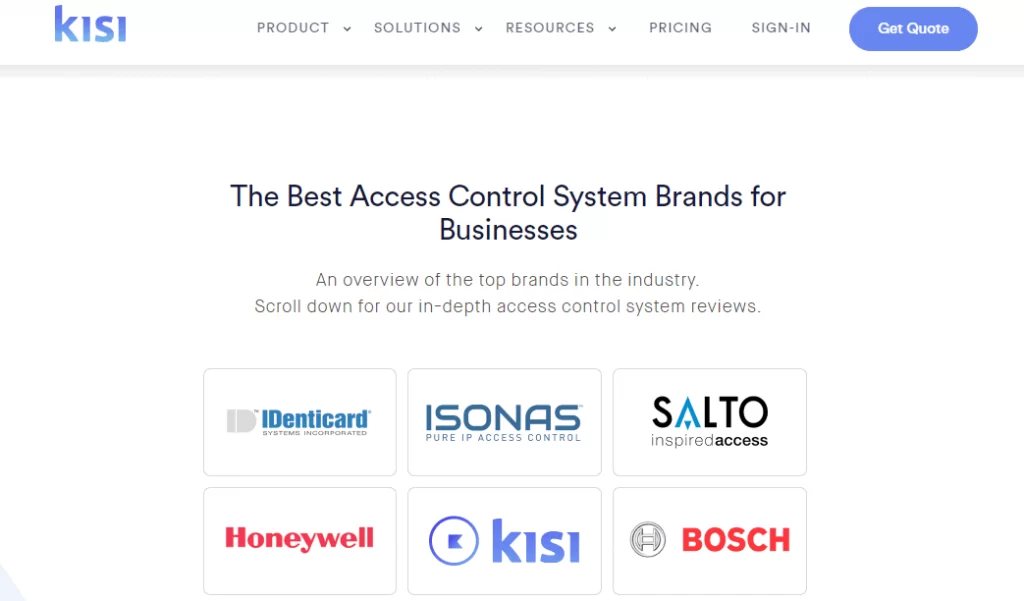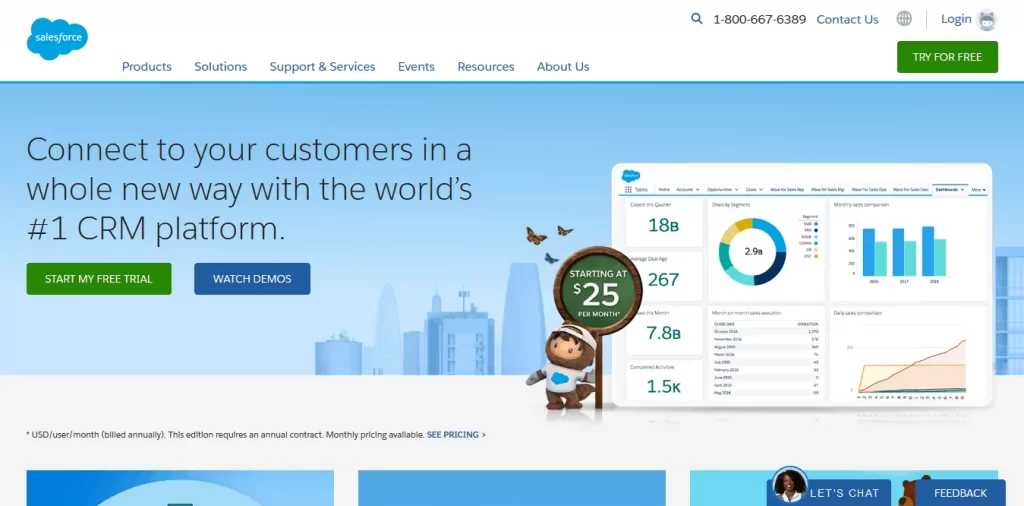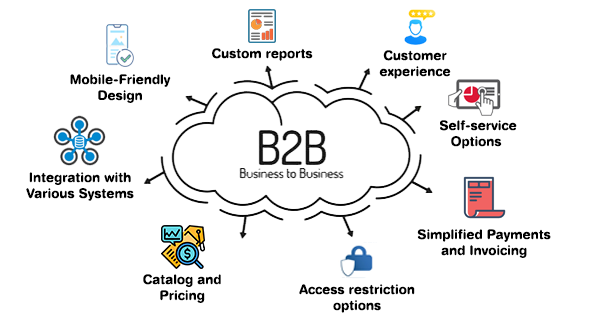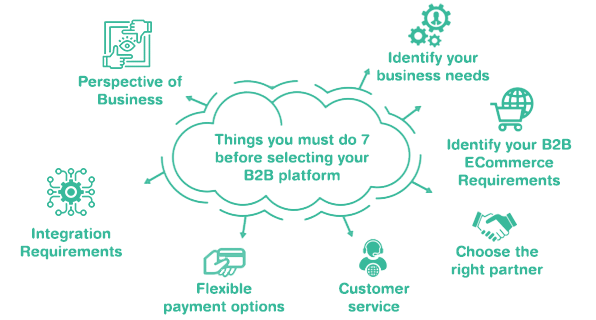B2B Complete Guide for 2023 Examples, Strategies
eCommerce
LAST UPDATE: AUG 17, 2022
9 minutes reading
As the business-to-business (B2B) eCommerce market is flourishing, more companies are shifting away from the traditional offline territory, becoming more accustomed to buying online.
According to Forrester Research, (Nearly 75% of B2B buyers now say that buying from a website is more convenient than buying from a sales representative).
Choosing the right B2B platform is a challenge for many businesses since not all eCommerce platforms are equipped to handle B2B transactions.
The B2B eCommerce platform with the appropriate features will lead you to success in your online B2B business and streamline the whole process of online selling.
What Are B2B Platforms?
B2B is an abbreviation of business to business. It represents a type of transaction between businesses.
B2B generally refers to the exchange of products, information, or services between businesses, such as a manufacturer and wholesaler, or a wholesaler and a retailer, not between businesses and individual consumers (B2C).
Transactions of B2B typically tend to take place in a supply chain where one company purchases raw materials from another company for use in the manufacturing process.
A B2B eCommerce platform is the one who provides the B2B online service for businesses to conduct business more easily.
Types of B2B Businesses
There are different types of businesses, Let’s take a look:
1- Product-Based B2B Business
The product-based B2B model is a type of B2B business where the business focuses on selling physical products to other businesses.
Product-based B2B businesses can have a physical presence (a brick-and-mortar store), or can be exclusively online, or both.
Kisi is a great example of a product-based B2B company.
2- Service-Based B2B Business
As the name suggests, service-based B2B companies provide other businesses with their own services.
These services can include:
Call management services
Marketing Agencies
Consultancy services
Translation services
Graphic designers
Office security
A CPA or accounting specialist
Lawyers specializing in business law
Service-based B2B companies typically have lower overhead compared to product-based B2B companies.
Again, service-based B2B businesses can be exclusively online, or have a physical presence, or both.
Rioks is a great example of a service-based B2B company.
3- Software-Based B2B Business
The software-based B2B model can be split into a Product-focused software-based B2B model, and a Service-focused software-based B2B model (SAAS model).
Product-focused businesses provide software solutions to other people, for example, accounting and invoicing software.
Freshbooks is a great example of a product-focused software-based B2B company.
On the other hand, Service-focused businesses can provide services to other companies, for example, providing cloud services, and Customer Relationship Management (CRM) to other companies.
Salesforce is a great example of a service-focused software-based B2B company.
How to Choose the Best B2B Platform for Your Business?
Choosing the right eCommerce platform is critical to the success of your online B2B business.
B2B platform helps you to launch your online B2B website, with complete support to manage and market your webstore successfully and many features that help improve customer experience, increase sales, and reduce costs.
Here are some features to consider when choosing a B2B eCommerce platform
-
Access Restriction Options
It is important for your chosen platform to be secure for your customer information.
eCommerce platforms should give you options related to restricted access to certain parts of your site, or allow only registered clients to access your website content and products.
-
Catalog and Pricing
The ability to set different base prices for a catalog of hundreds or even thousands of products is an essential aspect of a B2B eCommerce platform.
Being able to edit and update the information of different products such as quantities, prices, descriptions, specifications, and so on, makes your store more flexible and allows you to customize each client’s catalog according to his individual needs.
-
Integration with Various Systems
It is important for a B2B eCommerce platform to work with multiple systems, since it depends on different relationships, For instance, wholesalers, clients, and so on.
A successful B2B eCommerce platform has the ability to integrate data with multiple systems like CRM, ERP, EDI, and third-party Logistics systems.
In this case, your store is still constantly up to date alongside keeping your clients happy and satisfied.
-
Mobile-Friendly Design
Day by day, mobile commerce has become more important than before, more than 70% of B2B inquiries are made via mobile devices, so if your website is not mobile-friendly, your business is losing a lot of opportunities.
B2B eCommerce platforms should have mobile compatibility, and be responsive on various devices, to achieve ease of selling online and get more sales.
-
Custom Reports
The best eCommerce platform is the one that can collect all the data related to the online store, analyze the information, and turn it into insightful and useful reports, which in turn, enable your company to measure how well it is meeting your own goals and optimize your webstore.
Powerful reports give you a vision of your business-boosting and save you time and money.
-
Customer Experience
The most important thing you care about when you create your eCommerce website is customer experience, you need to create a friendly and intuitive experience for your customers when they visit your website and make them happy and satisfied.
you want to find a platform that has personalization options for your customers, to provide engaging experiences over the entire customer journey.
B2B companies should enhance the entire B2B customer journey by the ability to classify customers into groups.
Client segmentation allows the customization of customers’ experiences based on their profiles.
For example:
specify order volume according to customer.
bundle certain products together.
offer personalized pricing.
set a minimum order quantity per product for individual customers.
reorder previously purchased products.
specify different tiers for quantity discounts along specific price levels based on your customer groups.
-
Self-Service Options
A self-serve B2B eCommerce platform is a great fit for your business when you want to give your clients authority over-performing their tasks and self-oversee of their relationship with your company.
self-serve B2B platform gives your clients the ability to place orders, search your items, check the order status, and so on.
Automating routine and procedural tasks develops strong relationships with your customers, saves a lot of time for you and your customers, as well as achieves balancing digital and human interaction.
-
Simplified Payments and Invoicing
As B2B customers have different needs from and B2C customers, payments became crucial in eCommerce, especially in the B2B eCommerce world.
Your eCommerce platform should offer B2B clients a variety of multiple payment options (credit card, debit card, eCheck, payment wallets, internet banking, and guarantees either natively or through integration) in addition to other traditional payment methods in order to provide seamless buying and payments.
7 Things You Must Do Before Selecting Your B2B Platform
Perspective of Business
Understanding your business will give you Insights about choosing the B2B platform and allow you to set the right goals for your business.
First of all, you need to identify some standards which have an impact on your business. For instance, identify the average order value, your conversion rate, and customer lifetime value.
Ask yourself some questions like:
Why do I need an eCommerce site?
How can I acquire new customers? and how can I develop my relationship with the old ones?
What tools do I need to keep my business growing?
Identify your priorities, and then choose your B2B eCommerce platform with every goal in mind.
Identify your business needs
Whether you are a retailer, wholesaler, distributor, or manufacturer, you would need to choose a specific type of B2B eCommerce platform to accommodate your needs.
Pay attention to your unique requirements, do not choose the best eCommerce platform just because it is, it might not fit your requirements exactly.
Identify your needs, analyze your business and choose the platform with features that fit your business needs.
Identify Your B2B ECommerce Requirements
Identifying your business needs and requirements will help you then to take the next step, finding the suitable B2B eCommerce platform.
Most B2B eCommerce platforms have features that include content management tools, product merchandising, discount code tools, custom pricing, checkout functions, marketing & promotions, online payment options, loyalty, integrations, search engine optimization, reporting, and others.
Bottom line, bucket a list of features you desire, this will help you find the best B2B platform that can boost your business.
Choose the Right Partner
find the partner who has the capabilities that fit your business, and can meet your requirements, and evaluate his approach and experience side by side with keeping the balance between your requirements and budget.
Customer Service
One of the essential things that B2B differs from B2C is the customers’ relationships, B2B eCommerce systems can give you the ability to classify your customers and segment them into groups.
Segmentation could be based on their profiles, geographical location, type of industry, order volume, product quantity, reorder frequency, it also allows them to make varying pricing levels, and minimum orders for each customer.
In this way, B2B personalizes the customers’ shopping experience, streamlines transactions, caters specific needs for customers, and optimizes business profitability.
Identify the ways you want to deal with your customers, the services you want to offer them, and then choose the B2B platform that fits your customers’ needs.
Flexible Payment Options
Your business would need a wide range of options for payment, in order to select the right B2B eCommerce platform you have to ask yourself questions like
Do I receive large amounts of money from my customers?
Or maybe, need offline payment methods besides the online ones?
Do I offer many payment methods to my customers?
The answers to these questions will determine the B2B that meets your demand, B2B platform should have a variety of multiple payment options of both, online methods (credit card, debit card, eCheck, payment wallets, etc.) and offline methods.
Integration Requirements
It is important to think about the End-to-End Process for your business, without taking integrations into consideration, your business could fail.
make sure to put a successful strategy for all integrations and look for the B2B platform that allows you to:
Integrate eCommerce with the systems like ERP, CRM, order management system, warehouse management system, and inventory management system.
Provide customers with real-time data and keep them informed about the inventory levels, order fulfillment status, shipments status, etc.
offer different payment gateways for customers.
B2B Marketing Examples
B2B Social Media Marketing
It is essential for B2B brands to create a social presence, this helps promote brands, and connect better with prospects.
Example: LinkedIn.
B2B Content Marketing
Using B2B content marketing is one of the savviest marketing strategies that business can implement nowadays. It consists of many different types of content resources, such as video, audio, blog, and community events. but the most important way to reach more of your audience and boost your relationships with your ideal customers is podcasting.
B2B podcasts enable you to make valuable content, build trust and rapport with your clients, and make them look like an expert.
Example: Shopify Masters.
B2B Campaign Marketing
Campaign marketing still plays an effective role in B2B marketing strategies.
It’s typically conducted by email or advertising, before you can launch a campaign, you need to look back on the buyer’s journey stages, and make a lot of planning to ensure the campaign will increase your sales and get new customers.
B2B SEO
Any B2B marketing plan should have SEO (Search Engine Optimization) as an essential component of it. As a B2B buyer potentially uses one search engine at least during the online research, it can lead new buyers to find you.
Conclusion
It could be a challenge to select the right B2B eCommerce platform that fits your business successfully.
But, understanding your business needs, and considering the aspects, we mentioned above could help you to choose the powerful B2B platform that can boost the growth of your business and increase your sales.
see our B2B service here







Recent Comments